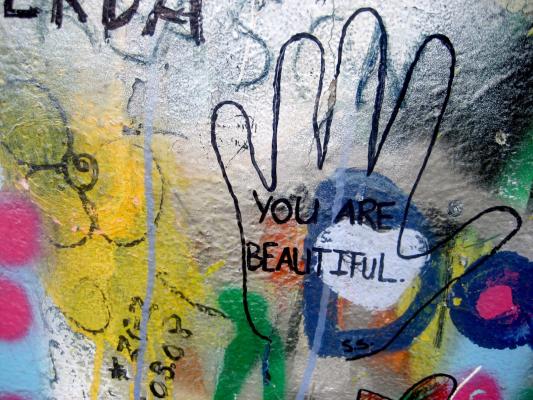
Case study
Cyber risks: you never know who is at the other end of the line
Vocational secondary school
A sixteen-year-old student: impulsive, violent in gestures and language.
A common class of teenagers, where a newcomer was supposed to integrate himself
A new student came to a high school class with students from different cultural backgrounds. The class was well-organised and students knew each other. The newcomer did not know anybody. He was impulsive, violent in gestures and language; students reacted against him. After being informed about the conflict, the class teacher spoke with the boy and his parents but his efforts were in vain. The student could not find his place in the new class.
Soon the student was isolated by his colleagues and parents complained to his class teacher, that he started spending time chatting on the internet. Otherwise, he was no longer violent - on the contrary, he was quiet. He even adopted a superior look as he was chatting with an ‘expert’ online about the ‘true meaning’ of life and a new religion, which might turn him into a world saviour. Parents and classmates noticed new changes in the student’s behaviour (despising women and reacting to the way women dress nowadays) and even appearance (growing a beard, wearing dull clothes). The class teacher sensed the possible risks and spoke about his challenge with his colleagues: principals, other teachers and the school counsellor. They developed an action plan based on students’ interests and skills which engaged the entire school.
High school schedule and extracurricular activities
Teachers, school counsellor: well-meaning, enthusiast, open-minded.
Getting-to- know activities in small groups, meant to help teachers/students to know each other.
Getting to know each other. Stimulate comprehension, communication. A sense of belonging to a group.
Common actions with school counsellor: Activities that help students to discover themselves and identify their strong points, interests, hobbies and preferences and help them valorize them and envisage a career plan.
Increase self-esteem, respect and self-confidence. Most teachers don't ask for their colleagues' help. Such cases are complex and sometimes need special expertise and experience, such as the school counsellor, the principal or other more experienced teachers.
Organize extracurricular activities, where students work in small groups according to their strengths and preferences and give them the opportunity to excel and prove themselves (to the others). Make them responsible for their choice. Concentrate on students positive qualities and let them know, what their positive qualities are and show them over and over again. Write them down on a piece of paper, which they can take home and read it when they want and when they need an encouragement in negative or stressful situations. Let other students in the group share positive thoughts, opinions about other students. Groups should mix and change the whole time, so all students have the opportunity to share their positive thoughts about others and also to receive their feedback.
Increase self-esteem, respect and self-confidence. If teachers always insist on student's defects, they will soon develop a negative attitude towards school and teachers; even if they accept the programme, they will show little behavioural improvement.
Organize extracurricular activities that rely on community service (such as working with the elderly or disabled children, helping young children with homework , desperate cases). Help them with their endeavours. Focus on students’ contribution, results and effort; appreciate and reward them publicly, so that they get a feeling of contributing to their community’s welfare.
Stimulate friendship. Develop the sense of belonging to a group. Discover each other’s strengths. Increase self-esteem.
Organize special events, where classes have to present their achievements to the entire school or community. Contact officials.
Develop the sense of belonging to a group. Discover each other’s strengths. Increase self-esteem.
Suggest an extracurricular activity on the use of the internet: Organize talks linked with learning activities about the use of the internet. Monitor their use of technology and the internet over a 24-hour period. Explore attitudes about their own relationship with the internet; discuss positive aspects and dangers.
Understand how the internet has changed our social, personal and learning activities. Raise students’ awareness about their use of the internet.
Comments
Students can change if they are listened to, shown trust and given alternatives.
Everything can be unlearned once its causes are known.
Ignorance, indifference, lack of communication and lack of empathy among students can pose everybody at risk.
All students can act positively.
Rely your work with students on the collaboration between school, students, parents, community.
Advice
Engage everybody in finding a solution.The collaboration with the counsellor is essential.
It is advise to use a remedial educative approach.
Concentrate on students positive qualities and let them know, what their positive fields/qualities are and show them over and over again.
Engage students in extracurricular actives according to their interests and strengths: thus they can see their impact on other people, right away, at that moment. They realise that their contribution can be very helpful and meaningful; it can really make a difference.
